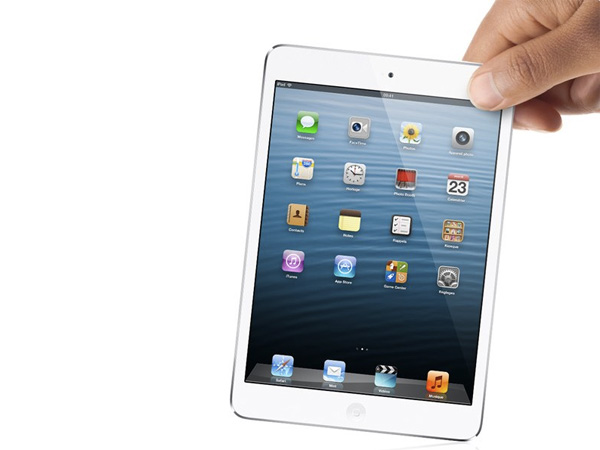iPad Mini Shipments May Drop 30% in 2Q13
iPad mini shipments are dropping up to 30-percent, possibly due to customers holding off for the next version.
Apple launched the iPad mini in November 2012 to address a portion of the tablet market dominated by Google's Nexus 7 and Amazon's Kindle Fire HD. The latter two Android models typically sold for around $199 (starting price), packing a lot of power, productivity and pleasure into a tight 7-inch form factor. But Apple was determined to be bigger, offering a larger screen size (7.9-inches) and a larger starting price of $329.
Because of this, it should not be surprising that shipments of Apple's iPad mini are expected to decline 20-percent to 30-percent in 2Q13. Unnamed "upstream sources" in the iPad mini supply chain are the source of the current rumor, reporting that the drop in shipments is due to a sheer lack of demand for the iOS tablet.
According to the sources, customers may be holding off on sinking their $329 into the iPad mini in anticipation for the next-generation version. They also said that Apple recently adjusted its reserves for the current model, dropping them down to 10 to 12 million units in 2Q13 compared to the 15 million units in 1Q13.
Naturally this drop in reserves will affect everyone in the supply chain, including South Korea-based LG Display which is the main supplier of panels for the iPad and iPad mini. LG reportedly expects to see combined shipments for the two devices to reach a mere 3.5 million units in April 2013, down from 5 million units in March 2013. Even more, the combined shipments are expected to drop even more to 3 million units in May and June of this year.
Still, Apple remains hopeful for 2013 on a whole, sources said, in that it may actually ship 55 million units of the iPad mini tablet by the end of the year.
Fox Business adds that Apple shares dropped fell 5.61-percent to $402.35 after reports of the iPad mini shipment decline began to surface. The report also points out that Apple generated an 84-percent year-over-year surge in shipments of overall iPads in the second quarter of 2012, to 17 million.
Get Tom's Hardware's best news and in-depth reviews, straight to your inbox.

Kevin Parrish has over a decade of experience as a writer, editor, and product tester. His work focused on computer hardware, networking equipment, smartphones, tablets, gaming consoles, and other internet-connected devices. His work has appeared in Tom's Hardware, Tom's Guide, Maximum PC, Digital Trends, Android Authority, How-To Geek, Lifewire, and others.
-
teh_chem This is a cyclical thing that's usually seen with Apple. Sure, it could mean anything, but year after year, when the current model is getting "stale," and nearing the time of a product refresh, analysts almost always make these "discoveries" and the stock tips. Then it goes up after the refreshed product is released. But the continued downward trend of the Apple stock is interesting, and probably an indication of investor confidence after more blunders than booms with the company.Reply -
house70 They'll slap a higher PPI display and call it a miracle (like the past 3 years or so of "innovation"). Apple has become so predictable and boring, it's not even funny anymore.Reply -
joebob2000 The burning question: what will the price of the mini be after the mini 2 comes out? Will they even keep it around? They could sell a ton of them for $229 if they cut the price $100 after they intro the retina version for $329 but they might keep it where it is and just charge more for the retina version ($429?) so that is going to be the big story when it breaks. My bet is that Apple wont sell the mini any cheaper, if they keep it at all. Surely they don't want to sell cheap tablets.Reply -
balister This is a "well duh" moment. You have the product at the end of the lifecycle, a new version of the product is in the wings, so people don't want to pay full price for something that is going to be "stale" in just a couple months when a "fresh" model comes out.Reply -
jessterman21 Put an A6 and Retina display in it, sell it for the same price, take the 7-8" tablet market by storm.Reply -
edogawa I saw a guy the other day say he got an iPad mini just because everyone else had one...I wanted to laugh.Reply
